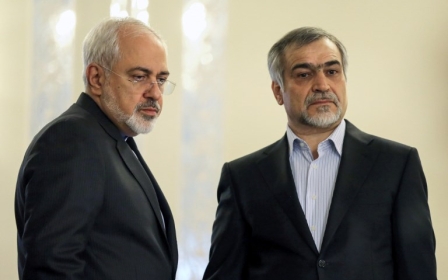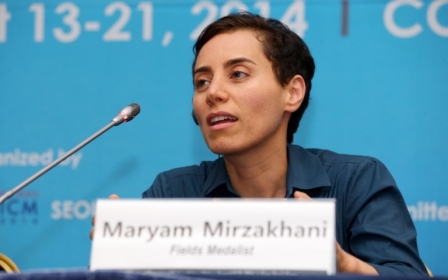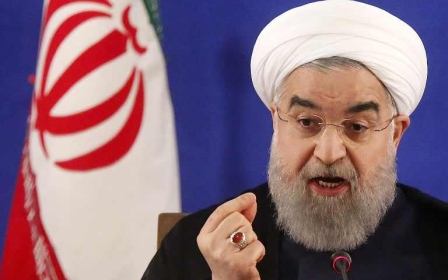'We don't have to fight': Iran says it can work with Saudi Arabia
Iranian Foreign Minister Mohammad Javad Zarif said on Monday he hopes Tehran and Riyadh can work together to solve regional conflicts, including in Yemen and Syria.
A Saudi Arabia-led coalition intervened in Yemen's civil war in 2015, backing government forces fighting Houthi rebels, whom Riyadh accuses of being backed by Iran. Saudi Arabia and Iran compete for influence in the Middle East, also supporting rival groups in Syria's civil war.
Saudi Arabia's Crown Prince Mohammed bin Salman said in May that any struggle for influence between Tehran and Riyadh ought to take place "inside Iran, not in Saudi Arabia".
When asked at the Council on Foreign Relations think tank in New York if he was worried about direct confrontation between Tehran and Riyadh, Zarif said: "We certainly hope not ... We don't have to fight; we don't need to fight. We don't need to try to exclude each other from the scene in the Middle East."
"We certainly hope that if we don't agree with each other about the situation in Yemen or about the situation in Syria we can still work with each other in order to bring those situations to an end," said Zarif, who was in New York for a high-level UN meeting on sustainable development.
Saudi Arabia, the United Arab Emirates, Bahrain and Egypt all cut off diplomatic and transport ties with Qatar on 5 June, accusing it of financing terrorist groups and allying with Iran - allegations Qatar denies.
"Iran is a serious partner for all these countries in fighting a common enemy because we believe at the end of the day ... these extremist forces are as much a threat against us, but even more a threat against them," Zarif said.
Zarif said that there was no communication between himself and US Secretary of State Rex Tillerson, but that "doesn't mean there can't be". He said Iranian and US officials had regular contact regarding a 2015 deal between Tehran and key world powers to curb its nuclear programme.
He added that Iran is receiving "contradictory signals" from the US administration about the fate of the nuclear deal.
President Donald Trump's administration on Monday declared that Iran was complying with its nuclear agreement with world powers, but warned that Tehran was in default of the spirit of the accord and that Washington would look for ways to strengthen it.
It was the second time Trump certified Iranian compliance with the agreement since he took office in January, despite criticising it during the 2016 campaign as "the worst deal ever."
Trump administration officials, briefing reporters on Monday on the decision, said new economic sanctions against Iran were being prepared over its ballistic missile programme and for contributing to regional tensions.
Under US law, the State Department must notify Congress every 90 days of Iran's compliance with the so-called Joint Comprehensive Plan of Action (JCPOA).
New MEE newsletter: Jerusalem Dispatch
Sign up to get the latest insights and analysis on Israel-Palestine, alongside Turkey Unpacked and other MEE newsletters
Middle East Eye delivers independent and unrivalled coverage and analysis of the Middle East, North Africa and beyond. To learn more about republishing this content and the associated fees, please fill out this form. More about MEE can be found here.




